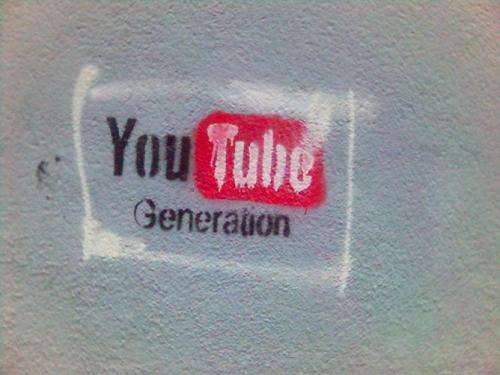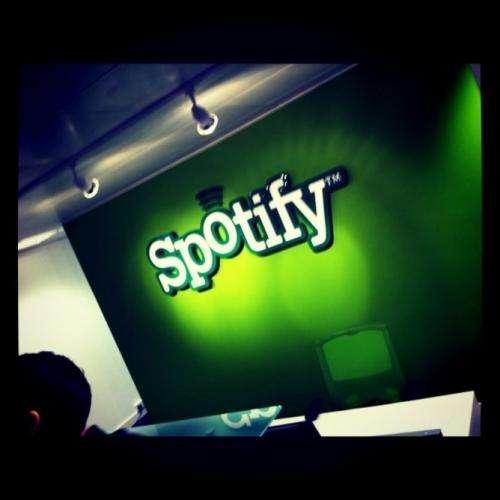Streaming may suffocate the music industry – or save it

Taylor Swift's announcement that she was removing her music from the Spotify music service started a debate about the future of music. Swift argued that artists were not receiving appropriate compensation and that a pick-and-choose approach to consuming music undermined value of music as art. Spotify, and similar music services, had been seen as the way of reconciling the interests of musicians, record labels and consumers in the face of rampant illegal downloading.
For decades the music industry has warned that illegal copying of music threatens the the industry's future, or even the existence of music itself. Broadband internet led to a worldwide blossoming of countless perfect digital copies. Copyright infringement, which the industry likes to call piracy, has soared – and profits have fallen. The music industry attempted to crush piracy using a combination of strong-arm legal tactics and technological fixes including copy-protection and digital rights management on CDs and digital files like MP3s. Both have failed, and increasingly users downloading content perceive piracy as a victimless crime.
From illegal to legal downloads
One route seen as possible salvation is that of legal download services run by companies such as Apple, Spotify, or Amazon. Apple announced in 2009 that it had sold more than six billion song downloads; by the following year it had reached ten billion. In fact paid downloads now represent about 40% of music industry revenues, but it has not reversed a long-term decline in total revenue. Instead downloads have cannibalised CD sales, now down to about 28% of total revenue.
But in 2013 something quite unexpected happened: revenues from downloads fell. And far from being a blip results for 2014 so far reveal an accelerating decline, with downloads falling a further 13% from last year.
So what's happened? An obvious answer might be that piracy has become more commonplace. But in fact data from several European countries suggests that music piracy is declining.

The British Phonographic Institute (BPI) representing the interests of the UK music industry has long claimed that only one in ten music downloads were legal. However the number of legal downloads has soared in recent years, the most recent estimate is that 345m tracks were illegally downloaded in the first half of 2013, alongside 239m legal, paid-for downloads. The BPI and academic studies show that blocking access to piracy sites increases legal sales. It appears that many pirates are not hardened, habitual criminals, but rather avid music fans who are perfectly willing to access legal content provided it is easy to find, reliable, of reasonable quality and most of all, affordable.
Music delivered, not owned
The decline of downloads isn't down to piracy, or that people have stopped consuming music – they're just not choosing to own it. Instead customers listen by streaming music directly over the internet in much the same way as radio, but with a choice of millions of tracks and albums that can be paused, skipped or replayed. Streaming has increased by more than a third in the UK over the past year, accounting for the same market share as CDs.
Streaming is dominated by Spotify, whose 40m users played more than 4.5 billion hours of music in 2013 alone. While only a tiny fraction of music consumers are Spotify users, the company is already having a profound effect in its home country, Sweden where the company now sells more than 70% of all music. Spotify has also been credited with growing the domestic music market and for a healthy reduction in music piracy within Sweden – impressive, for a country that also gave birth to the Piratebay.
The right price… for listeners
Streaming's success stems not just from the convenience of access to an enormous music library at any time or place and on any device with an internet connection, it is also driven by price: three-quarters of Spotify's customers pay nothing for their music. Free customers generate income from advertisements inserted between the tracks. A quarter of customers pay a flat monthly rate for advertising-free subscriptions and it is these heavy music consumers who make the service viable.
Record companies love streaming and credit it for their return them to growth after years of decline. Rights holders are paid on a per-play basis, for Spotify this is between $0.006 and $0.0084 per track, with the company returning a total of US$500 million to the music business in 2013 alone. More customers playing more songs means that the licensing fees paid to record companies continue to grow. Crucially, these fees must be paid whether or not a user is a paying subscriber.
But Spotify is not profitable. Despite impressive year-on-year growth, its costs - mainly licence fees - have continued to rise and the company has had to raise more funding. The same applies to US rival Pandora. Both companies are desperate to convert free customers into lucrative subscribers. Spotify's conversion rate of 25% implies there is a lot of room to grow, but evidence from other "freemium" companies suggests that only 1-10% of customers ever pay for products, and conversion rates are highly price sensitive.
It is entirely possible that the majority of streamers can never be persuaded to pay for their music. And if we don't pay for our music, how can we invest in the next generation of artists?
Source: The Conversation
This story is published courtesy of The Conversation (under Creative Commons-Attribution/No derivatives).
![]()



















